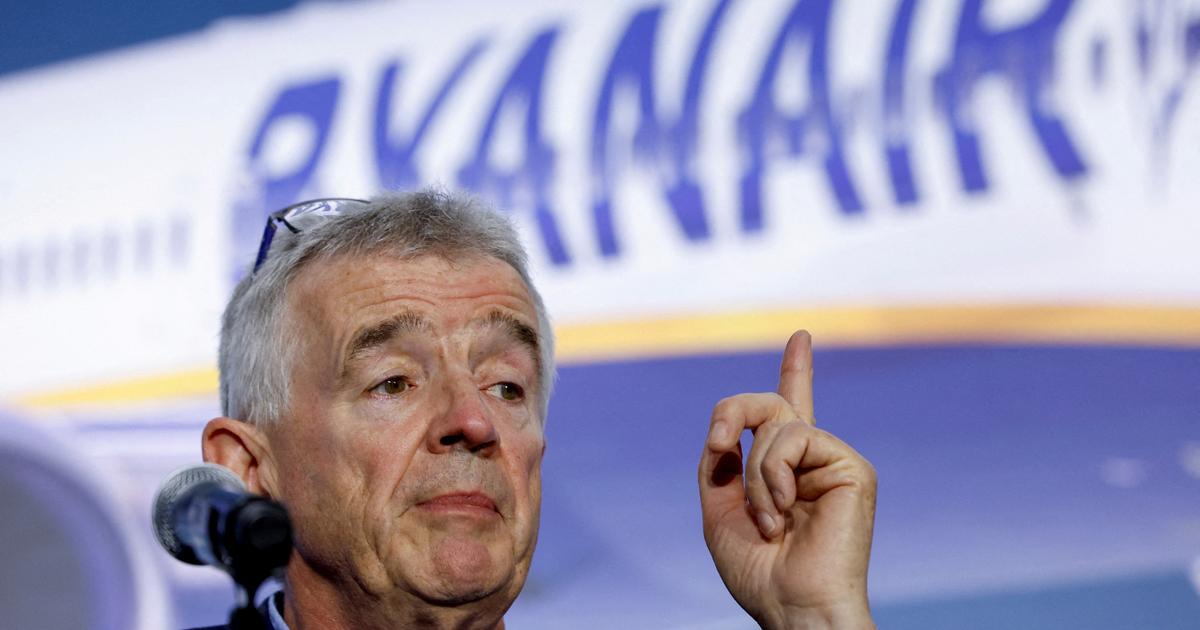- Click to share on Facebook (Opens in a new window)
- Click to share on Twitter (Opens in a new window)
- Click here to share on LinkedIn (Opens in a new window)
- Click to email a friend (Opens in a new window)
Editor's Note: Ashley Fulmer, an associate professor in management science at Georgia State University, writes that the chain of high-profile incidents at Boeing has made it clear that there are deep problems in the company. The company's cautious responses, which work when an isolated incident occurs, are counterproductive at this time. As things stand, the public could interpret that, instead of accidents, these cases are the result of systematic failures
(CNN) - A series of serious incidents with Boeing aircraft makes it clear that there are deep problems in the company. Boeing's pattern of incremental solutions and cautious responses is a strategy employed by companies to weather the storm that can result in a single product failure or a bad corporate step. But if the storm is perpetuated, the strategy becomes counterproductive. Instead of isolated and accidental incidents, the public could now see a systematic and widespread failure in Boeing.
Boeing may choose to wait for another incident to occur and continue to respond with droppers or strategically reform its culture and make substantial changes that renew public confidence in the company.
Boeing got stuck in a quagmire of controversies since two of its 737 Max planes crashed in Ethiopia and Indonesia with a balance of more than 340 dead. Authorities around the world decided that the planes would stop flying from March. Ex-engineers and aviation analysts at Boeing considered that the accidents were due, in part, to faulty sensors. The solution has not yet been approved by regulators and the flight ban has been extended by new concerns around these same failures. Also, the jets of previous versions, the 737 Next Generation, need to be inspected to identify possible cracks in the union of the wings with the aircraft fuselage and, possibly, a review of the engine parts of all aircraft to detect possible design defects, according to the US Federal Aviation Administration In the case of 777X, a failure in a test delayed deliveries, although Boeing said it is not unusual to see a failure in this type of testing.
In the midst of all these incidents, reports have emerged about a culture in which profits are above people, evasion of honesty and conformity about criticism. In 2018, a Boeing engineer raised his concern about the 737 Max before the fatal accidents occurred, but the company decided to move forward with its production schedule. Executive President Dennis Muilenburg said at a hearing before the House of Representatives Transportation Commission that he had personally discussed the employee's concerns, that a team had reviewed them but that, in the end, there was no change in production. .
Boeing has implemented a series of measures to respond to concerns and argues that it has a broad safety record. But the measures implemented do not solve all critical issues. There are problems of trust of employees and pilots, for example, in addition to safety. Boeing created a new Product and Services Security organization to centralize its efforts to improve safety, and launched a system of anonymous complaints and a safety museum that displays artifacts recovered after accidents to remind employees about the possible repercussions of his work. These responses show reorganization attempts, but do not indicate fundamental changes in the company's culture.
Unlike aircraft repairs, incremental solutions will not be enough to regain confidence. To achieve this, Boeing must look beyond the update of security practices and procedures and add a neutral and transparent third party to carry out a diagnosis that covers all the systems of its corporate culture. It could be a consultancy of an advisory panel composed of industry members, industry experts and even legislators. The focus should be on the alignment between the values adopted by Boeing and those that it actually puts into action. The evaluation should seek to reveal the existing gaps in capacity, integrity and benevolence, then inquire whether those gaps have led to actions and practices that erode trust both inside and outside the company.
At the same time, Boeing needs to make changes at the higher levels beyond withdrawing the title of president from Muilenburg. A new executive president will show that Boeing is ready to change. A new leader will also be more open and willing to accept and implement the suggestions of a third party regarding cultural changes throughout the system. The executive president must show that leadership is responsible for the safety and integrity of the company's products, rather than line employees, and that it is open to do whatever it takes to rebuild the trust of the public and its employees.
Only when Boeing changes its culture in pursuit of transparency and security will the public receive the repeated strong and positive signals it needs to alleviate its concerns and once again trust Boeing.
Translation of Mariana Campos
Boeing 737 MAXBoeing 737 max 8







